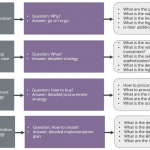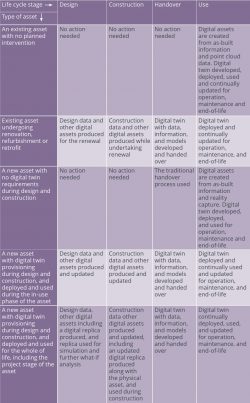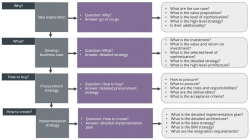Global Construction Industry Confronts Major Challenges Amid Pandemic and Geopolitical Risks
Market Development Summary
The global digital construction industry is confronting major challenges as it emerges from the widespread disruption caused by restrictions imposed to contain the spread of COVID-19. With the Ukraine crisis set to persist in the coming quarters, the global economy will face severe headwinds amid high energy and commodity prices, supply chain bottlenecks, and worsening investor confidence. Amid rising inflation, central banks have been tightening monetary policy, but with inflation being driven by supply-side pressures, there is a growing risk that high-interest rates will choke off the recovery from the pandemic. Global construction output is now projected to expand by 3.3% this year, a downward revision from 4.0% previously. This follows growth of 3.7% in 2021 and a contraction of 2.3%
Excluding China, the global construction industry posted growth of 4.5% in 2021 and is set to slow to 2.9% in 2022. Performances across countries and regions will vary greatly, but South Asia and North-East Asia will be the best performers when comparing output in 2022 to the pre-COVID-19 levels. India suffered a sharp contraction in 2020 but rebounded in 2021, and in 2022 output across South Asia will be 10.1% higher than in 2019 in real terms.
Opportunities and Risks
The key risks to project momentum remain significant, with geopolitical uncertainty stemming from the ongoing Ukraine crisis, in addition to rising inflation, tightening monetary policy and supply chain disruptions.
Supply chain disruption is the main road blocker. The global construction industry has been recovering from the severe disruption caused by the COVID-19 pandemic. However, it continues to confront major challenges. Shortages of key materials and associated rising prices for such materials have impacted the progress of construction projects, while logistical hold-ups along with supply chain disruptions are extending lead times. The combination of these factors means that contractors are finding it increasingly difficult to complete projects on time and on budget. Many of these challenges have been exacerbated by the Ukraine crisis, which has resulted in a further surge in energy costs as well as disruptions in the supply of vital materials, including steel.
Labour s hortage has been a long and looming challenge. In addition to supply chain disruptions, the construction industry has also generally been struggling to recruit labour to meet requirements. The shutdown of the construction industry in many major markets in 2020 and also during periods in 2021 resulted in a sharp decline in construction employment, and there have been difficulties in recruiting talent as construction activity bounced back. Prior to the COVID-19 crisis, there had already been concerns about the aging construction workforce and the looming challenge of ensuring that retiring skilled workers would be replaced. The reliance in many markets on immigrant labour has also been exposed in the wake of the COVID-19 crisis, with a proportion of this workforce not returning to their previous locations.
ESG is one of the most important themes of this decade. It’s little wonder that pressure on the construction sector to further contribute to the clean environment and be more and more transparent as far as environmental, social and governance (ESG) are concerned. Calls for the construction sector to act are coming from many directions. Investors and consumers are voicing concerns about ESG issues, with legislation, regulation, and reporting requirements evolving quickly in many jurisdictions around the world. In the UK, all companies bidding for government contracts worth more than £5m a year must now commit to net zero by 2050, while new proposals in the EU call for the mandatory disclosure of the emissions potential of new buildings over their whole life cycle, effective from 2027 to 2030. Companies must perform well in all areas of ESG. Being a laggard in any one of the pillars of the ESG framework will hurt their brand reputation and, ultimately, profits. In general, European construction companies respond more rapidly in terms of ESG hiring.




























































